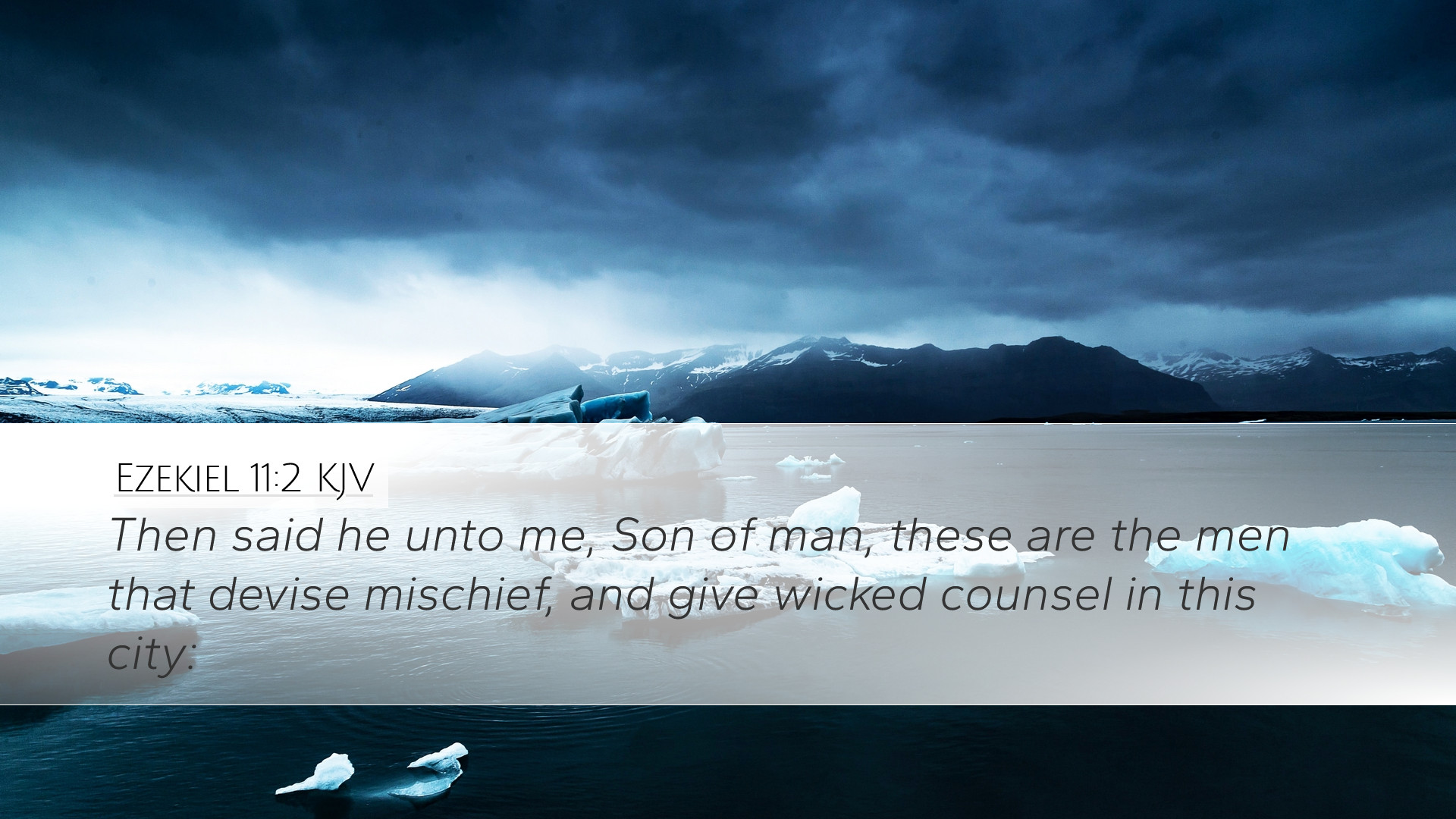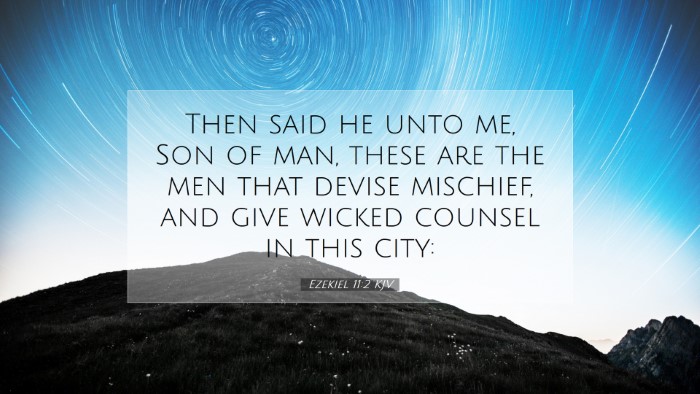Bible Commentary on Ezekiel 11:2
Ezekiel 11:2 states: "And he said unto me, Son of man, these are the men that devise mischief, and give wicked counsel in this city." This verse is set within a larger context of prophecy and judgment against Jerusalem, highlighting the corrupt leaders and false prophets who misled the people.
Contextual Overview
The book of Ezekiel is rich with prophetic imagery and a profound message concerning the sovereignty of God. As God's messenger, Ezekiel confronts both the sins of Israel and the impending judgment that must come upon them. In this specific passage, we find ourselves at a crucial point in Ezekiel's vision, where God reveals the inner workings of the hearts of the leaders in Jerusalem.
Commentary Insights
Matthew Henry's Commentary
Matthew Henry emphasizes the character of the men being addressed in this verse. He notes that these leaders are not just political figures, but they embody a broader category of spiritual authority that is misleading the populace. Henry underscores the idea that their “mischief” and “wicked counsel” are not only personal sins but represent a systemic corruption that impacts the entire city. He further remarks:
- Corruption of Leadership: Henry points out the alarming nature of these leaders’ counsel, a commentary on the moral decay present in both religious and civil authority.
- Divine Knowledge: The phrase “he said unto me” conveys God's omniscience. God reveals the secrets of their hearts to Ezekiel, emphasizing that nothing escapes His notice.
- Judgment Approaching: The wickedness of these figures cannot be overlooked, and Henry labors to explain that such corruption invites destruction upon the city.
Albert Barnes's Notes
Albert Barnes provides a detailed analysis of the phraseology used in the verse, highlighting the term “mischief” as indicative of their evil plans. Barnes elaborates on the societal implications of their actions:
- Wicked Counsel: He interprets “wicked counsel” as both a literal and figurative language describing treason against God. Their deceit not only harms individual lives but also strains community trust.
- Spiritual Blindness: Barnes indicates that these leaders are blind to the consequences of their actions, suggesting that such a condition was prevalent among leaders who forsook the covenant.
Adam Clarke's Commentary
Adam Clarke adds a historical lens to the discussion, providing context by examining the sociopolitical state of Jerusalem at the time. Clarke points to a theme of warning against false prophets and corrupt leaders:
- False Prophets: Clarke asserts that false prophets were not just misguiding the people but were also reflecting the hearts of those who followed them, leading to broader implications for the community.
- Call to Repentance: With Clarke’s views, there's an urgent call implicit in this passage for the people to recognize their plight and consider their course of action seriously.
Theological Implications
This verse serves as a reminder of the sacred responsibility that leadership holds in guiding the faithful. The clear condemnation of false counsel and wicked plans highlights the moral weight borne by those in positions of power. Each commentary underscores God's judgment not only upon individuals but also upon systems and structures that perpetuate sin and corruption.
Practical Applications
For pastors, students, and theologians, Ezekiel 11:2 challenges us to reflect on the nature of leadership in our own contexts:
- Integrity in Leadership: Leaders must commit to a life of integrity, ensuring that their counsel aligns with divine truth.
- Societal Influence: The impact of leadership extends beyond individual actions and influences the moral landscape of the community.
- Call for Vigilance: It is necessary to remain vigilant against harmful rhetoric that can lead the faithful astray.
Conclusion
Ezekiel 11:2 serves as a significant touching point in understanding the dangers of ungodly counsel and the judgments that follow such actions. As we delve deeper into this verse, may we be continually reminded of the weight of our words and actions, the necessity for aligning our counsel with God’s will, and the overarching promise of restoration that follows repentance.


